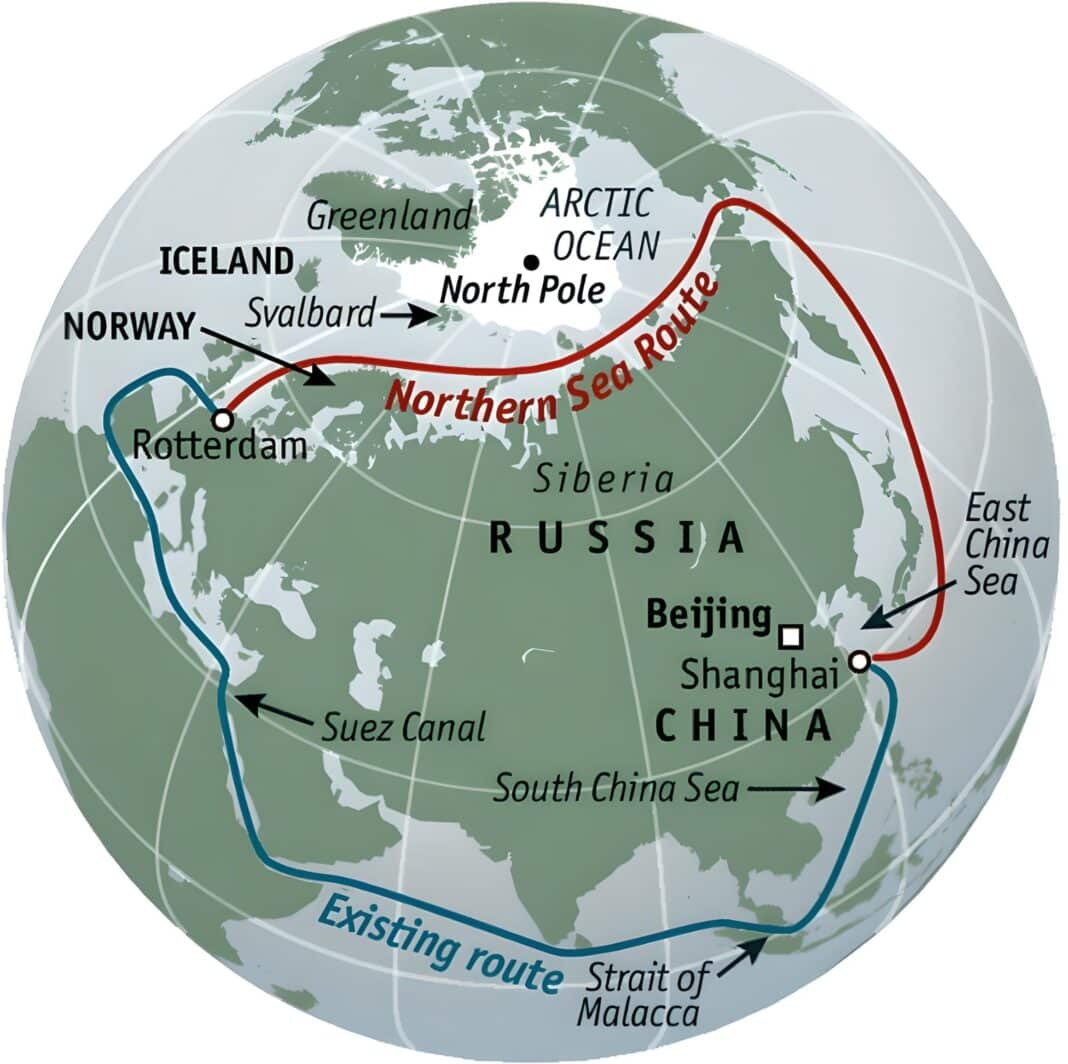Russia and China have big plans for the Arctic, with the two superpowers now collaborating on Northern sea routes for oil, gas and timber.
As reported in Norwegian media sources, a delegation of Russian governors met with leaders of the Shandong Port Group to discuss new shipping routes.
On the agenda is Russia’s Arctic timber trade, with the company transporting Russian timber to global markets through the Chinese ‘red lane.’
The meetings are the latest in a series between the governors and Chinese officials in the aftermath of Xi Jinping’s visit to Moscow in March.
“We are entering a new level of partnership with China,” according to Murmansk Governor Andrei Chibis.
China and Russia, Governor Chibis said, “have a joint interest in the development of the Northern Sea Route.”

According to Governor Chibis, the ice-free waters of Murmansk offer direct access to the World Sea without the need to traffic through international straits.
Over the past four years, trade turnover between Murmansk and China has increased by 140 per cent, and, according to Governor Chibis, the Chinese want more.
He said Chinese companies are interested in the Northern Sea Route and want to invest in shipbuilding in the Kola Peninsula.
“I am confident that we will succeed in boosting interaction with Chinese partners,” Governor Chibis said.
The Arctic has emerged as a ‘Cold War’ battleground, with Russia, China, the EU and the US all eying off new trade routes due to retreating ice caps.

In fact, according to a report published by Brown University last year, “the Arctic’s navigability will increase so greatly that it could yield new trade routes in international waters.”
“This not only reduces the shipping industries carbon footprint but also weakens Russia’s control over trade in the Arctic.”
Lead author Amanda Lynch said the time to think critically about the legal, environmental and geopolitical implications is now.
In Russia, the Kremlin now offers tax breaks and subsidies to businesses investing in ‘capacity building’ projects in the Arctic.
The 2020 legislation will see over US $300 billion invested in Arctic infrastructure over the next 15 years to make “the Arctic popular with Russian youth.”
The investment will see 200,000 jobs created in the region, focusing on LNG, petrochemical, mining and timber industries.
These incentives stimulate economic activity and the construction of towns, power plants, ports, and airports and stem the outmigration of the population from the region.
Since Russia invaded Ukraine, the country’s relationship with China took on even greater significance. More than 83% of Russia’s timber export goes through Chinese supply chains, with China now Russia’s distribution point to global forest markets.
For their part, Chinese shipping companies like the Shandong Port Group play a crucial role in Russia realising its Arctic aspirations.
The company includes four major seaports in the Chinese Shandong region and last month, Wood Central understands they visited the Russian Arctic region to look at local port development projects.
Komi Governor Vladimir Uiba – who has strong ties to the failed Wagner group – is pushing to attract Chinese investment in forest processing.
Komi is Russia’s second-largest state and is home to the Virgin Komi Forests – a UNESCO World Heritage Site and the largest virgin forest in Europe.
At the same time, the Governor of Arkhangelsk, Aleksandr Tsybulsky, in May this year, told General Consul Wang Wenli that his region now increasingly looks toward China.
“Now is the ideal time for adding new impulses to our partner relation,” Governor Tsybulsky said.
“Arkhangelsk Oblast is in a serious way changing its export policy, and we plan a significant increase in supplies to China of wood products.”
China is exploiting Russia’s weakened position in international affairs and significantly strengthening its influence over the Russian economy.

Chinese companies have increased major stakes in several Russian industrial projects in the Arctic, including the Yamal LNG and Arctic LNG 2 projects.
In a meeting between Russian Arctic Ambassador Nikolai Korchunov and China’s Special Representative Gao Fen in early September this year, both parties underlined the strategic character of the bilateral Arctic cooperation.
According to the Russian Foreign Ministry, the two men exchanged views on possible ways to further strengthen interaction in the Arctic in light of the new geopolitical situation.
“Both sides underlined the high priority of the Arctic in the context of the development of national interests of Russia and China.”






